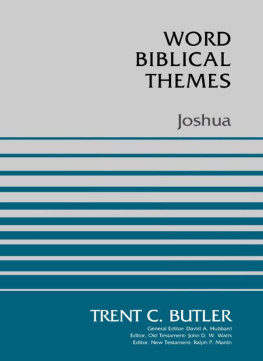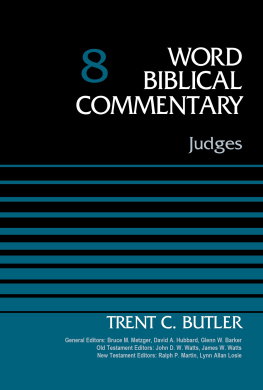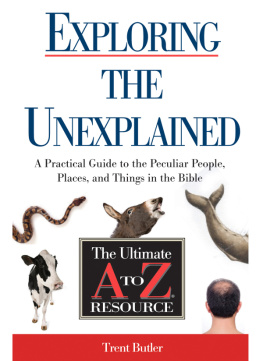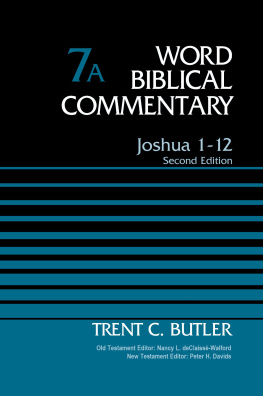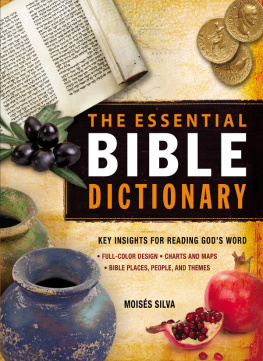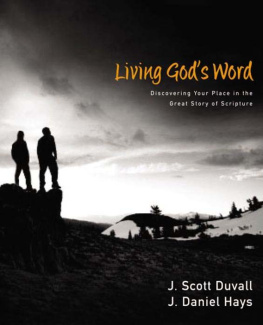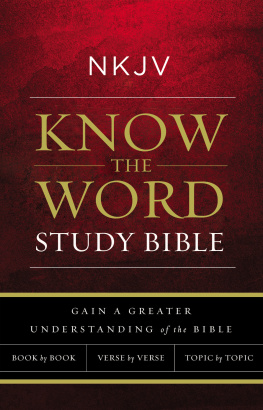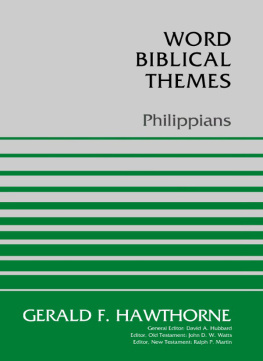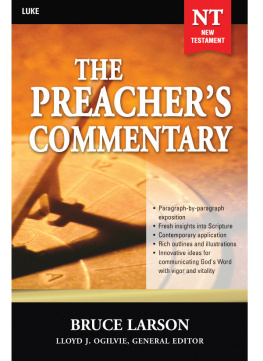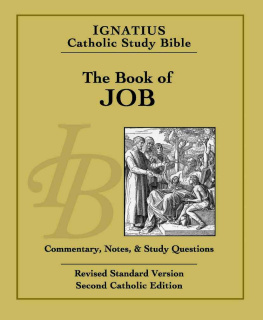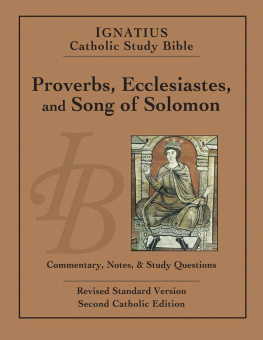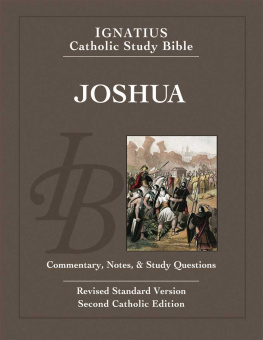David A. Hubbard
John D. W. Watts
Ralph P. Martin
Finding the great themes of the books of the Bible is essential to the study of Gods Word, and to the preaching and teaching of its truths. But these themes or ideas are often like precious gems; they lie beneath the surface and can only be discovered with some difficulty. The large commentaries are most useful to this discovery process, but they are not usually designed to help the student trace the important subjects within a given book of Scripture.
The Quick-Reference Bible Topics meet this need by bringing together, within a few pages, all of what is contained in a biblical volume on the subjects that are thought to be most significant to that volume. A companion series to the Word Biblical Commentary, these books seek to distill the theological essence of the biblical books as interpreted in the more technical series and to serve it up in ways that will enrich the preaching, teaching, worship, and discipleship of Gods people.
Joshua is an up-beat narrative about the fulfillment of Gods promises to an obedient people. It is the natural sequel to Deuteronomy. Dr. Trent Butler builds on his intensive research for his Word Biblical Commentary on Joshua to sketch the dominate themes of this intensely theological book.
This volume is sent forth in the hope that it will contribute to the vitality of Gods people as we, too, try to occupy the promised land which God has for us.
Southern Baptist Theological Seminary | John D.W. Watts |
| Louisville, Kentucky |
| Old Testament Editor | Word Biblical Commentary
Quick-Reference Bible Topics |
Learning biblical languages, researching for articles in scholarly journals, writing commentaries, all of the work the biblical scholar does has one ultimate goalunderstanding the major topics Scripture teaches and helping the church understand and bring to life those topics.
In that sense this small volume represents the completion of the work on Joshua begun so many years ago and brought to major expression in the Word Biblical Commentary, Volume 7. The present book seeks to summarize the lessons learned from Joshua in writing the commentary and make those lessons available to a wider audience. All translations of Joshua in this book come from the commentary.
This volume is released to its wider audience with the prayer that it will help the church better understand the churchs nature as Gods people and help it to know its Lord. The volume is also released in gratitude to the editors and to numerous colleagues who have encouraged and inspired me to continue working in the book of Joshua. This book is due in no small part to my son Kevin and his assistance on the computer, and to my wife and her patience in letting me retire to the study for one more book.
Certainly other topics could be dealt with from Joshua. Also, the themes chosen for exposition here could be dealt with more clearly and comprehensively. I hope the present work will inspire readers to search Joshua and all of Gods Word to find the truths he has taught his people and to determine how those truths should impact a believers life. In this work, I have quoted from my own translation of Joshua as found in the volume of the Word Biblical Commentary. When reference is made to that book, Volume 7, it is abbreviated WBC 7:(page number).
It is appropriate that I release this volume to the publisher at the Christmas season when one greater than Joshua took up the same Hebrew name and came to deliver Gods people, not alone from enemies occupying the Promised Land, but from the ultimate enemy Sin, thus giving us salvation that reaches into the promised world to come. I release this manuscript with the prayer that it may help its readers face anew the call to commitment to be loyal people of the Lord in, over, and above history, and that it may call forth faith to know and follow because I will put my laws into their minds, and I will write them upon their hearts. And I will be their God, and they shall be my people (Heb 8:10 NASB ).
Trent C. Butler
Brentwood, Tennessee
The assignment: write a brief study on the themes of the book of Joshua. This raises a probing question: How does one discover themes that are both important within the narrative structure of Joshua and are of interest to readers approaching the twenty-first century? The task calls for research into the nature of biblical narrative and sensitivity to the concerns of the modern church and world.
Research into biblical narrative literature has only recently begun to ask questions concerning how to determine and define narrative themes. Final answers are not yet available. Individual scholars have proposed numerous methods of approach to biblical themes. Thus we are compelled to describe our approach to biblical narrative as we begin this volume. The following lines will sketch one possible method for determining which themes are important within the narrative structure of biblical literature. We will then apply the method to the book of Joshua to determine significant themes. The remaining chapters will take up each theme and trace its meaning within the book with occasional references to the modern situation.
The type of literature
To know the themes of a piece of literature, we must know the kind of literature with which we are dealing. We will expect different things from satire, comedy, biography, court records, personal letters, and historical research. Most often, the type of literature will reveal the major theme of a book. A salvation oracle from a prophet or priest requires us to deal with the topic of salvation. A hymn of praise points to the topics of praise and worship. A letter calls forth the theme of relationships between the writer and recipients. An apocalyptic work makes investigation of persecution and future hope paramount.
The list could be extended indefinitely. The point is clear. The major theme of a work is more than the sum of major vocabulary items the writer used. A salvation oracle may never use the word salvation. A hymn may not explicitly mention worship. No one vocabulary item will define the relationship between writer and recipient of a letter. Only knowledge of the type of literature can give the necessary information to lead to the literary works major theme.
The literary structure
The type of literature represents a general category with many individual literary works within the category. Comparing the individual works and finding their common elements and intention lets us define the category. Part of the definition will include general structural elements which recur in most pieces of literature that belong to the literary type. Thus a lament may be described as having the following elements: address to God, statement of the complaint, expression of trust in Gods help, plea for Gods help in the specific situation, description of enemies, and a concluding vow to praise and honor God for deliverance.
Such general structural elements of a literary type find specific form in the individual work of literature. The structure of the individual work gives clues as to the major themes. Where the work varies from the usual structural elements of the literary type, where it creates new elements, where it repeats or otherwise gives special emphasis to elements, what it places in the introduction and conclusionall these elements of literary structure provide strong evidence of the major theme of the work.

